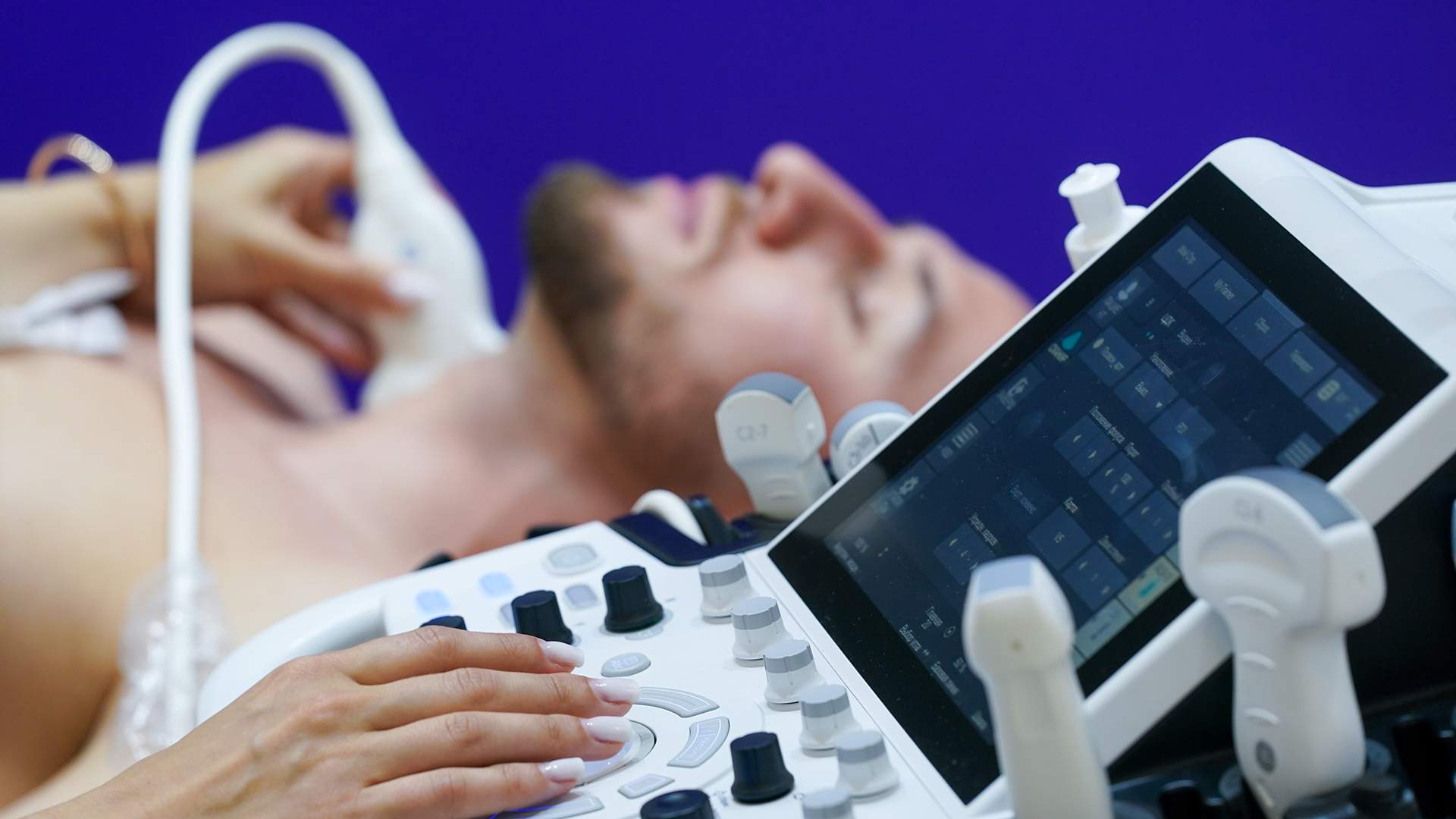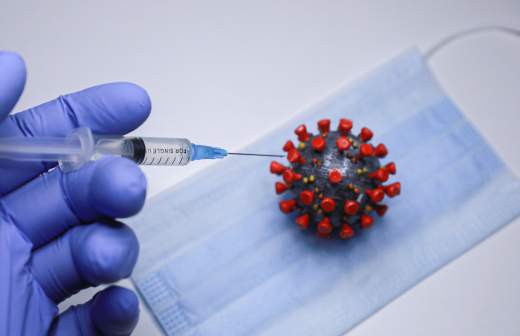From weakness to excess weight: doctors named the signs of thyroid diseases

World Thyroid Day is celebrated on May 25. According to WHO, up to 1.6 billion people suffer from diseases of this organ. In Russia, up to 40% of the population is confronted with them, and, according to doctors, young people are increasingly coming to consultations. Izvestia tells us what non-obvious symptoms may indicate thyroid problems in adults and children and how to be properly examined.
Alarming numbers
The number of patients with thyroid diseases is growing in Russia. There are more young people among them — this is due to lifestyle changes, prolonged stress and poor nutrition, Natalia Tanakina, an endocrinologist at Akademika Roitberg Clinic, told Izvestia.
According to the National Research Institute of Endocrinology of the Russian Ministry of Health, almost 40% of the country's population has thyroid diseases in Russia. In most cases (80%), the cause is a chronic lack of iodine, which all Russians are deficient in one way or another: at a daily rate of 150 mcg, people consume two to three times less. A decrease in thyroid function develops in 8% of people over 60 years of age, and 10-30% of the population living in iodine deficiency regions develops goiter. More than 14 million Russians have thyroid nodules, and in some of them (6-10% of cases), the palpable node may be malignant.
Izvestia requested relevant statistics from the Ministry of Health and the National Research Institute of Endocrinology, but had not received a response at the time of publication. According to the latest open data from the Ministry of Health, from 2013 to 2016, the incidence increased by 12.1% (from 2037.1 to 2283.5 cases on average per 100,000 population).
Thyroid diseases are more common in women after the age of 30 due to hormonal changes, pregnancy, and autoimmune predisposition. The risk group also includes people with burdened heredity and chronic stress, added Veronika Ochirova, an endocrinologist at the FNCC of the FMBA of Russia.
— It is important to pay attention to the symptoms. They can vary depending on the specific disease. Hypothyroidism can lead to fatigue, weight gain, dry skin, depression, and hair loss. It can also cause weight loss, excessive sweating, irritability, and palpitations," the doctor noted.
At the same time, there may be non-obvious symptoms: changes in mood, problems with concentration, a feeling of heat or cold. With them, it is also important to consult a doctor and undergo an examination.
Diseases of the thyroid gland
According to endocrinologist Natalia Tanakina, today patients with hypothyroidism (decreased thyroid function), hyperthyroidism (increased function), thyroiditis (inflammation of the thyroid gland), neoplasms in the thyroid gland and thyroid cancer most often seek help. The leaders among the diseases are hypothyroidism and nodular goiter (benign neoplasm of the thyroid gland).
Thyroid diseases can manifest themselves in different ways. It all depends on how many hormones the gland produces — in excess or in short supply. Both conditions are dangerous in their own way and affect almost all body systems.
— Thyrotoxicosis most often develops against the background of prolonged stress, autoimmune and oncological processes in the thyroid gland. This is a condition in which thyroid hormones become too much. At first, a person may feel a surge of strength, work tirelessly, even lose weight — and at this stage, the changes even seem positive to many. But over time, the body begins to deplete," says Vera Serezhina, an expert at the LabQuest laboratory.
Another, more common situation is hypothyroidism, when the gland is weak and hormones are not produced enough. This may be due to a lack of trace elements such as iodine, iron, and selenium. Hypothyroidism is not as noticeable as thyrotoxicosis, but the consequences can be no less severe. The body begins to live in slow motion.
— In women, weight gain is often the first sign, sometimes 5-6 kilograms in just a month. This is due not so much to fat accumulation as to fluid retention. Thermoregulation is disrupted: some people start to freeze even in warm weather, others do not tolerate heat well. The mood drops, drowsiness appears, weakness, morning awakening does not bring cheerfulness. The pressure may decrease, the pulse may slow down," says Seryozhina.
Hypothyroidism can also manifest itself as cognitive impairments: concentration and memory deteriorate, especially in children, they stop doing well in school. The disease is also noticeable externally, it affects the skin and hair.: the skin becomes dry, the hair becomes dull, and it begins to fall out. Sometimes even the eyebrows thin out.
The danger of diseases
Thyroid diseases are dangerous for the body. According to endocrinologist Natalia Tanakina, neglected disorders can lead to serious complications such as cardiovascular diseases, metabolic disorders, infertility, and in the case of thyroid cancer, life-threatening.
If hormone production is in excess, as in hyperthyroidism, the cells begin to "burn out": not only fat, but also protein structures, including skeletal muscles and other tissues, disintegrate.
— This condition is especially dangerous for the heart muscle — it will manifest itself with such dangerous symptoms as tachycardia, arrhythmia, pressure surges. In women, the menstrual cycle may be disrupted. The gastrointestinal tract will work in an accelerated mode, increased peristalsis will appear. The body temperature will rise to subfebrile values, the person becomes sensitive to heat. Initially, there is a surge in mental activity, and then there is a decrease in it, up to mental disorders. As a result, a person may die from problems with the heart and nervous system," says Vera Serezhina.
Undiagnosed hypothyroidism is especially dangerous for the elderly, pregnant women, and children. Older people may experience severe conditions, including brain edema and coma, the so—called hypothyroid crisis. This condition is often observed in patients who have not been tested for thyroid hormones for a long time. Such cases require emergency care.
At the same time, Tanakina adds, diseases are usually treated or brought under control. Early detection significantly increases the chances of a successful recovery of the patient.
Diagnosis and prevention
Many of the symptoms of thyroid disease are nonspecific and may go unnoticed. Therefore, doctors recommend taking regular hormone (TSH) tests at least once a year. If there are deviations, then ultrasound and additional examination for autoimmune antibodies to TSH receptors, thyroglobulin and thyroperoxidase should be performed. If necessary, treatment is prescribed.
— Hypothyroidism, for example, can be corrected quite simply. Sometimes it is enough to make up for iodine or iron deficiency, because hypothyroidism develops not only with autoimmune diseases, but also against the background of a lack of these trace elements," says Vera Serezhina, a doctor. — If we are talking about more serious disorders, hormone replacement therapy is prescribed. Drugs containing thyroid hormones are well tolerated and give a noticeable improvement in well-being.
Prevention of thyroid diseases includes proper nutrition (enough iodine in the diet), giving up bad habits, physical activity, and regular medical checkups, especially for people at risk.
— People with a family history of thyroid disease, those who live in regions with a high risk of iodine deficiency, and women over the age of 30 are advised to check thyroid function every 1-2 years. Regular monitoring in the presence of symptoms is also important," adds Natalia Tanakina.
It is especially important to monitor the thyroid gland for people with iron deficiency anemia, patients receiving chemotherapy, children, adolescents, and pregnant women. In children, the development of the gland must "keep up" with the growth of the body, otherwise developmental delays are possible. In pregnant women, she works for two people at once — the mother and the fetus. The lack of hormones during this period is especially dangerous, it can lead to delays in the intrauterine development of the child's nervous system, up to severe forms of mental retardation. During pregnancy, separate standards are even used to assess the functioning of the thyroid gland, and if necessary, hormones are prescribed immediately.
Thyroid disorders can occur at any age, and it is much easier to detect them at an early stage than to treat severe complications. Therefore, doctors recommend monitoring the condition of the organ and not forgetting about the prevention of its diseases.
— The main thing is not to ignore the body's signals. Unexplained weight gain or loss, fatigue, anxiety, and pulse fluctuations are not just "bad mood" or "vitamin deficiency." This may be a sign of a disease that affects not only your thyroid gland, but your entire body. Timely treatment by an endocrinologist can prevent years of chronic fatigue and risk to life," concludes Veronika Ochirova, an endocrinologist at the FNCC of the FMBA of Russia.
Переведено сервисом «Яндекс Переводчик»








